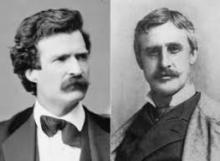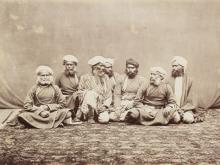Sam Clemens Returns to the Mississippi River
- Read more about Sam Clemens Returns to the Mississippi River
- Log in to post comments
Excerpts from Life on the Mississippi
AFTER twenty-one years' absence, I felt a very strong desire to see the river again, and the steamboats, and such of the boys as might be left; so I resolved to go out there. I enlisted a poet for company, and a stenographer to 'take him down,' and started westward about the middle of April. [LOTM p 247]

